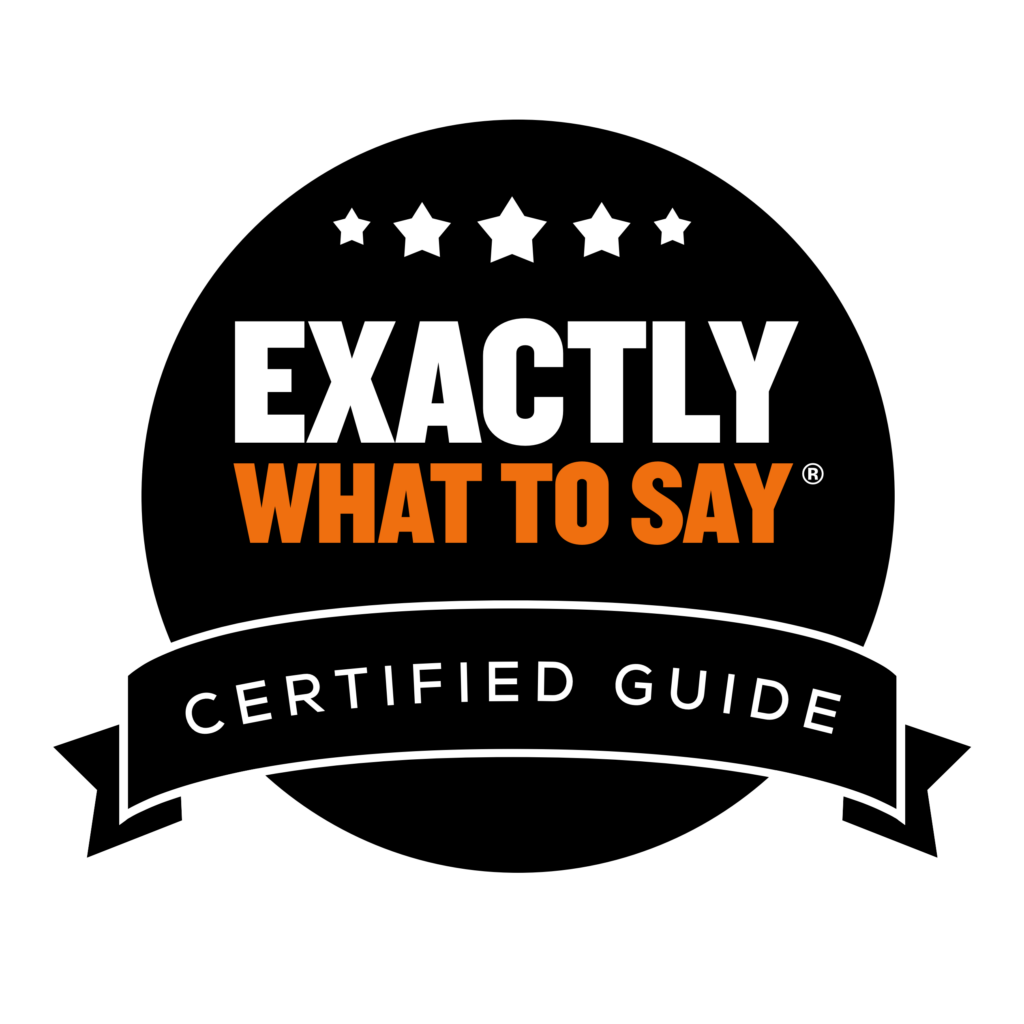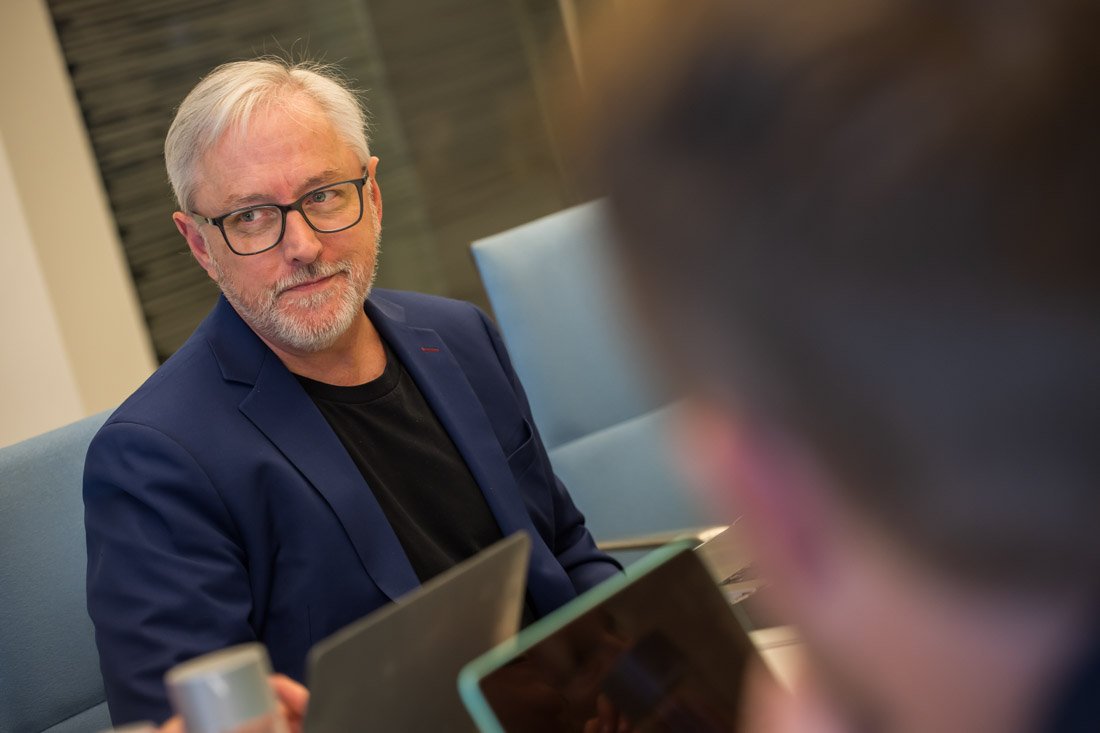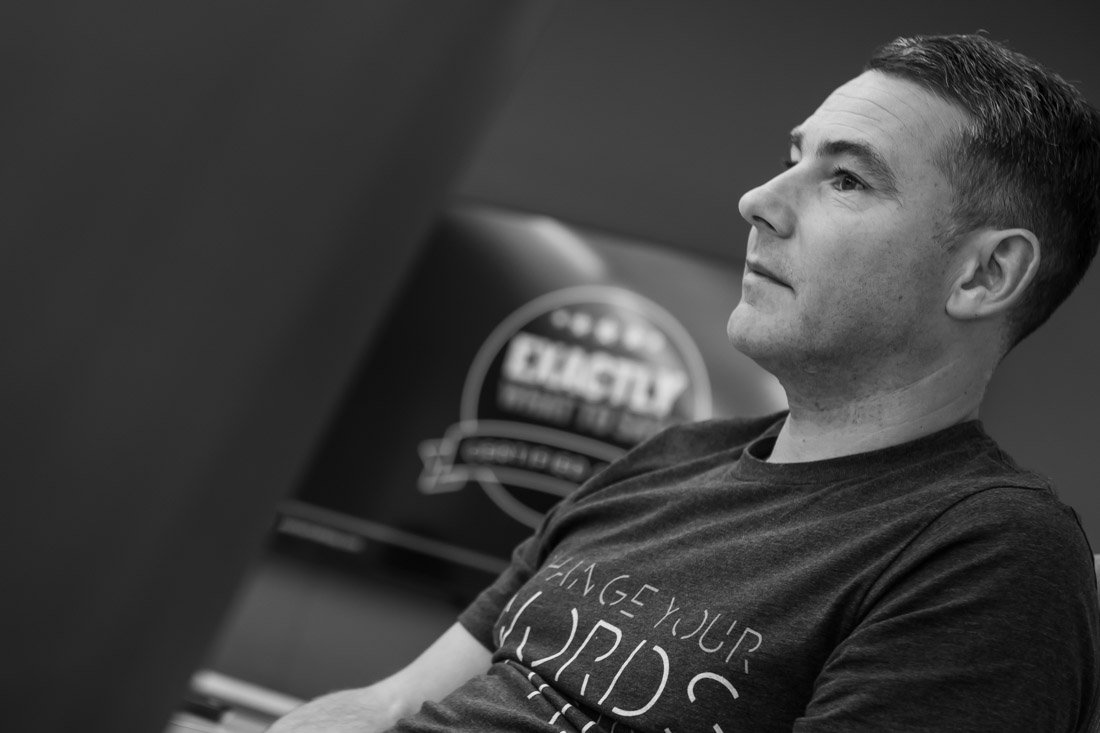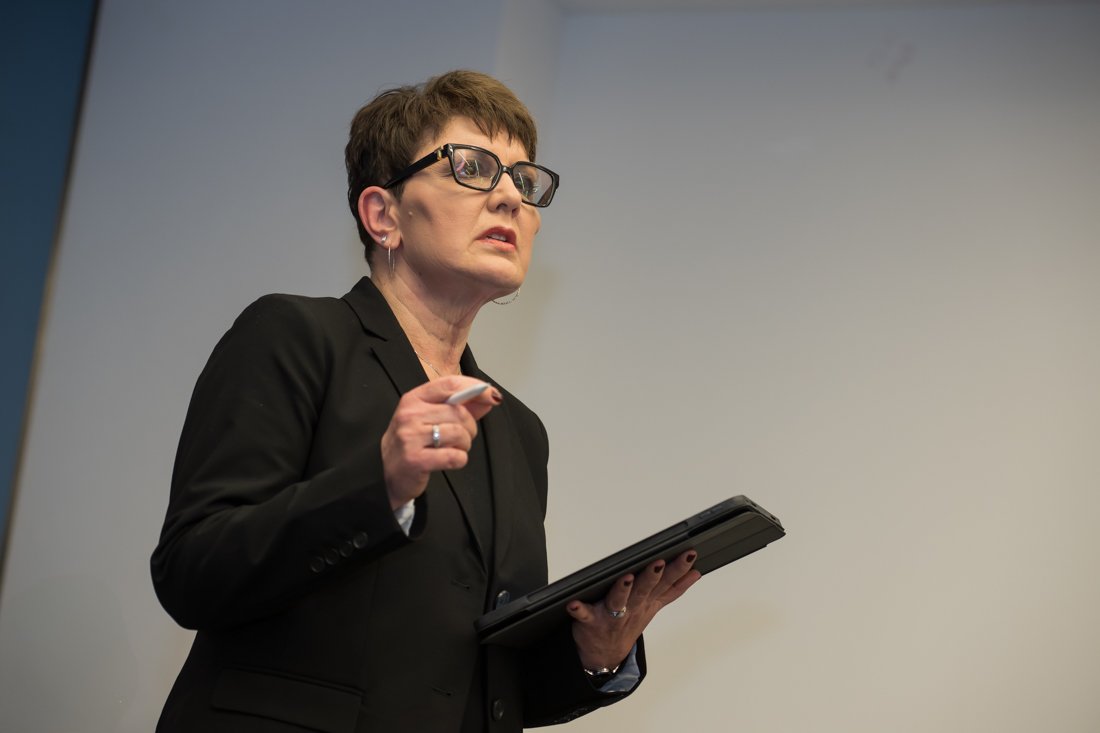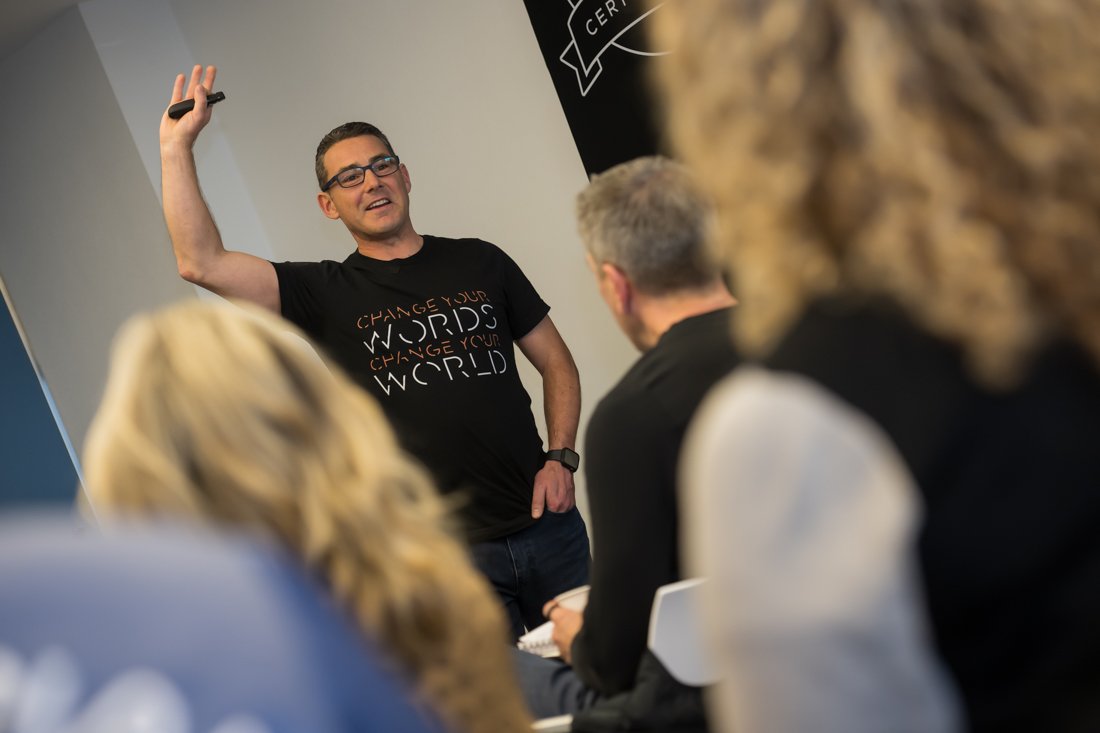The world moves at an ever-increasing pace. The demands on leaders, communicators, and entrepreneurs continue to grow. Coaching, once seen as a luxury, is becoming essential for those navigating more responsibility, visibility, and opportunity.
Leadership Has Evolved
The old leadership model was built on authority. It rewarded control, hierarchy, and having all the answers.
Today’s leadership requires:
- Listening more than talking
- Asking more than telling
- Leading through influence, not just instruction
Coaching helps you develop this kind of leadership, sharpening your ability to show up with presence, clarity, and trustworthiness.
Communication Has Never Been More Critical
In a time where every message carries weight—where one meeting, one pitch, or one conversation can change everything—coaching helps you prepare with purpose.
As the saying goes, the worst time to think about what you’re going to say is the moment you’re saying it. Coaching gives you space to do the thinking before the pressure hits.
Coaching Counters Isolation
Leadership can be lonely. So can entrepreneurship. Even in collaborative environments, there are times when you can’t process things with your team or clients.
Coaching gives you a protected space to think out loud—a relationship fully focused on your development, without judgment, agenda, or performance pressure.
Coaching Helps You Stay Ahead, Not Just Catch Up
The most effective leaders and communicators aren’t reactive, they’re intentional. They do the work before the work.
Coaching helps you build that habit. It helps you:
- Plan before pressure sets in
- Align before commitments are made
- Prepare before conversations begin
- Clarify before you say yes or no
In short, coaching helps you stay ahead of the curve—not constantly scrambling to catch up.
Finding the Right Coach
The coaching relationship is uniquely powerful precisely because it’s built on trust, confidentiality, and deep alignment with your specific goals. Not every coach, even a highly qualified one, will be the right match for your particular needs and working style. Taking time to find the right coach is an investment that pays significant dividends throughout the coaching engagement.
When considering potential coaches, several key factors deserve careful attention:
Professional Credentials and Training
The coaching profession has matured significantly over recent decades, with increasingly robust standards for education, ethics, and ongoing professional development. When seeking a coach, look for professionals who have completed rigorous, accredited training programs, gained substantial coaching experience beyond their formal education, and demonstrated ongoing commitment to ethical practices and continuous learning.
A strong indicator of these professional standards is training through ICF accredited coaching programs. The International Coaching Federation (ICF) is widely recognized as the gold standard for coaching excellence, providing accreditation for high-quality coach training programs that meet strict educational requirements. Coaches trained through ICF accredited programs have:
- Completed comprehensive, coach-specific training that meets established standards
- Learned foundational coaching models, ethics, and core competencies
- Been trained in a methodology that emphasizes professional coaching rather than advice-giving or consulting
- Developed skills in accordance with established best practices in the coaching field
Many professional coaches also pursue ICF credentials, which verify that a coach has:
- Accumulated substantial documented coaching experience
- Demonstrated proficiency in core coaching competencies through performance evaluations
- Committed to ongoing professional development
- Pledged adherence to a strict code of ethics and professional conduct
This quality of training and credentialing matters significantly. According to the 2022 ICF Global Consumer Awareness Study, clients working with coaches who completed accredited training programs reported more than twice the satisfaction levels compared to those working with coaches without such training. This striking difference reflects the impact of standardized training, ethical guidelines, and demonstrated competency that professional preparation ensures.
While credentials alone don’t guarantee a perfect fit for your specific situation, completing an ICF accredited training program provides an essential foundation of professionalism and expertise upon which a successful coaching relationship can be built.
Chemistry and Connection
Beyond qualifications, the personal connection between you and your coach profoundly influences the coaching relationship’s effectiveness. You need to feel comfortable with your coach and confident that they genuinely understand your unique context, challenges, and aspirations.
To assess this critical dimension, schedule initial interviews or discovery sessions with potential coaches. During these exploratory conversations, pay attention to your intuitive response as you consider questions such as:
- Do I feel truly heard, understood, and respected by this person?
- Does the coach's communication and interpersonal style resonate with me personally?
- Can I imagine being completely honest and vulnerable with this individual?
- Do they demonstrate genuine curiosity about my situation rather than rushing to conclusions?
- Do I feel energized and clearer after speaking with them, or drained and confused?
- Are they someone I can trust with sensitive information and challenging situations?
- Do I feel naturally motivated to work with this particular coach?
These subjective factors significantly impact the coaching relationship’s success. Even the most qualified coach won’t be effective for you if you don’t feel comfortable being open and honest with them or if their approach doesn’t align with how you naturally work and learn.
Specialized Experience and Approach
Different coaches often develop particular areas of expertise or specialize in working with specific populations, industries, or challenges. While a skilled coach can effectively support clients across many contexts, there can be advantages to working with someone who understands your particular field, role, or situation.
Consider whether your goals might benefit from a coach with specialized experience in areas such as:
- Executive leadership in your specific industry
- Entrepreneurship and business development
- Career transitions or professional reinvention
- Communication and public speaking
- Team development and management
- Work-life integration and wellbeing
Equally important is understanding a potential coach’s fundamental approach and methodology. Some coaches are more directive, others more exploratory. Some use structured assessments and frameworks extensively, while others take a more flexible, customized approach. Some focus primarily on action and outcomes, while others emphasize mindset and internal shifts.
There’s no universally “right” approach—only approaches that may work better or worse for your specific needs and preferences. Clarifying these factors helps ensure alignment between what you’re seeking and what a particular coach offers.
Practical Considerations
Beyond the relational aspects, practical factors also influence coach selection. Consider logistics such as:
- Session format (in-person, virtual, or hybrid)
- Scheduling flexibility and availability
- Engagement length and session frequency
- Fee structure and payment options
- Cancellation and rescheduling policies
- Additional resources or support between sessions
While these practical elements shouldn’t override considerations of quality and fit, they do affect the coaching relationship’s sustainability and convenience. Finding a coach whose working structure aligns with your preferences and constraints increases the likelihood of a successful engagement.
Confidentiality and Ethical Standards
Confidentiality forms the bedrock of effective coaching relationships. For coaching to work, you need absolute confidence that your conversations remain private and protected—allowing you to explore challenges, vulnerabilities, and possibilities without concern about how this information might be shared or used.
Professional coaches adhere to strict confidentiality standards as part of their ethical code. Even when an employer pays for coaching, ICF’s Code of Ethics ensures that the content of your coaching conversations remains private. The only exceptions are where you explicitly request and authorize information sharing.
When considering potential coaches, don’t hesitate to ask detailed questions about their confidentiality practices and ethical guidelines. A professional coach welcomes these questions and can clearly explain how they protect client confidentiality while still working effectively within organizational contexts when applicable.
Interview Questions to Consider
When meeting potential coaches, prepare questions that help you assess their experience, expertise, approach, and alignment with what you need. The most effective coaching relationships begin with thoughtful exploration of fit and capability. Consider asking:
- What coaching certification and training have you completed? (Look for ICF-accredited programs)
- How do you approach the coaching process? What methodology or framework guides your work?
- How do you balance coaching with practical application? How do your clients implement what they learn?
- What results have your clients typically achieved through working with you?
- How do you measure progress and success in coaching relationships?
- What types of clients or situations do you find you work with most effectively?
- How would you help me apply what I learn in real-world situations?
- What expectations do you have of your coaching clients?
- What ongoing professional development do you pursue to enhance your coaching skills?
- How do you integrate communication strategies into your coaching practice?
The best coaches will appreciate these questions and respond thoughtfully, seeing this conversation as the beginning of a potential partnership rather than a test to pass. Pay attention not just to their answers but to how they engage with you during this exploratory conversation. Do they listen deeply? Do they ask insightful questions in return? Do they demonstrate genuine curiosity about your situation?
These initial interactions provide valuable insights into what working with this coach might actually feel like and whether they’re likely to be the right partner for your growth journey. Quality coaches typically combine professional excellence (through accredited training and demonstrated experience) with personalized approach and strong interpersonal skills.
The time invested in finding the right coach pays tremendous dividends. When you find a coach who has been properly trained through an ICF-accredited program, understands effective communication principles, and connects well with your specific needs and working style, you create the foundation for a transformative coaching relationship that can accelerate your growth and development in ways few other professional relationships can match.
Conclusion: An Invitation to Growth
You don’t need to have everything perfectly figured out to benefit tremendously from coaching. In fact, quite the opposite is true—coaching thrives precisely in those spaces where clarity is still emerging and possibilities remain open.
You might find yourself at a significant turning point, preparing for something that feels both exciting and daunting. You might be navigating a transition that’s reshaping your professional identity or responsibilities. You might simply be tired of trying to think through everything on your own, recognizing that even the most capable leaders benefit from structured reflection and thoughtful partnership.
Wherever you currently find yourself, professional coaching offers something increasingly rare and valuable in our hyperconnected yet often superficial world: a protected space to reflect, reset, and move forward with genuine clarity. No noise. No performance pressure. No competing agendas. Just a conversation fully focused on you—your goals, your growth, and your next meaningful move.
This protected thinking space allows you to step out of reactive mode and into a more intentional, strategic approach to your leadership, communication, and decision-making. It helps you reconnect with what matters most when urgent demands have pulled your focus elsewhere. It provides the structure and accountability to translate good intentions into consistent action.
The work you do in coaching reverberates far beyond the coaching sessions themselves. The clarity you gain, the strategies you develop, and the shifts in perspective you experience influence countless conversations, decisions, and interactions throughout your professional and personal life. Coaching doesn’t just help you address immediate challenges—it builds your capacity to navigate future challenges with greater confidence and effectiveness.
Perhaps most importantly, coaching acknowledges a fundamental truth about human development: we grow best in relationships. Even the most self-aware, disciplined individuals benefit from the mirrors, questions, and supportive challenges that a skilled thinking partner provides. There’s wisdom in recognizing that seeking support isn’t weakness—it’s a strategic investment in your continued growth and effectiveness.
The best time to gain clarity about your next steps is before the pressure hits—not after you’re already in the middle of it. Coaching gives you that opportunity. It provides the space to do the thinking before the moment matters most, so you can show up with authenticity, impact, and purpose when it does.
Whether you’re already thriving and want to reach new heights or facing challenges that have temporarily knocked you off balance, coaching offers a proven pathway to greater clarity, confidence, and capability. It’s an investment not just in what you do, but in who you’re becoming as a leader, professional, and person.
The journey begins with a single conversation—an exploration of where you are now, where you want to go, and how coaching might help bridge that gap. That initial conversation isn’t a commitment to a lengthy process; it’s simply an opportunity to discover whether coaching might be the right resource for your current situation and aspirations.
Because ultimately, coaching isn’t about following someone else’s formula for success. It’s about creating your own definition of success and developing approaches that authentically reflect who you are, what you value, and where you want to go. It’s about becoming more fully yourself—clear, confident, and capable of creating the impact that matters most to you.
If you’re interested in exploring coaching for yourself, go to EWTSCoaching.com to hear Marc and Phil talk about coaching or to book a call.


